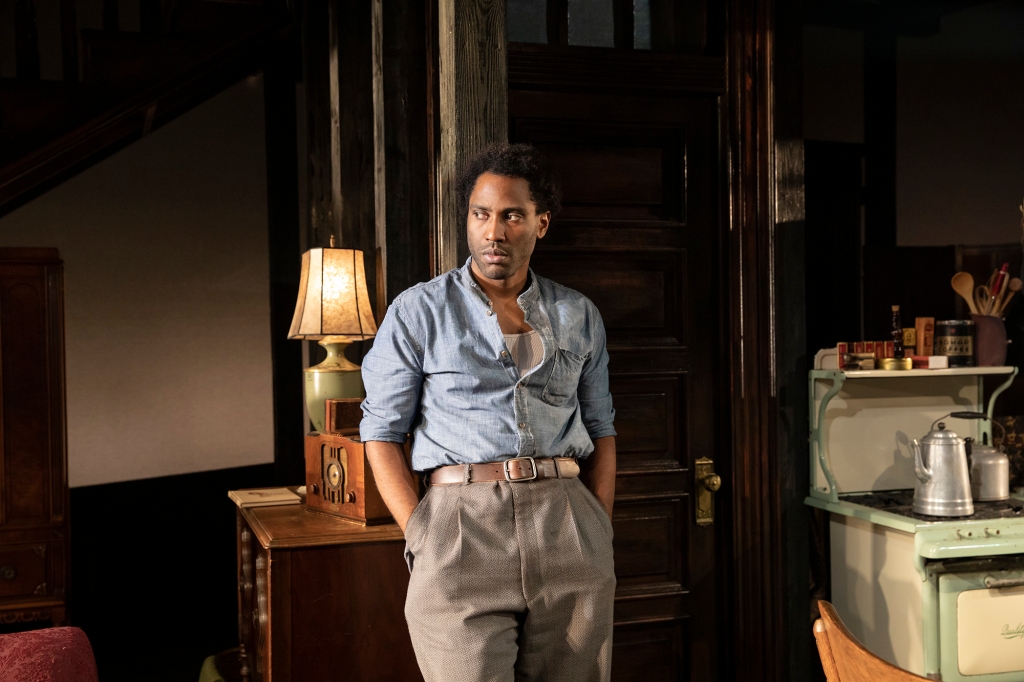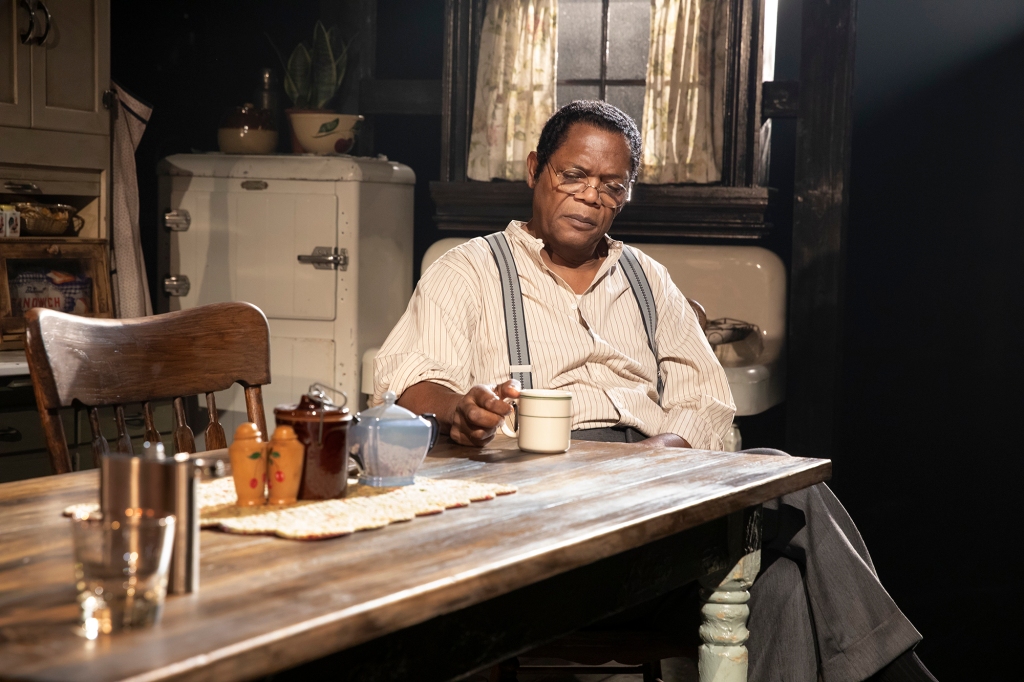‘The Piano Lesson’ Broadway review: A blisteringly acted drama
The revival of “The Piano Lesson,” which opened Thursday night on Broadway, is mostly in tune.
The August Wilson play’s greatest asset is its young leads John David Washington and Danielle Brooks, both of whom are already widely admired, but display an altogether new and enticing range of skills.
2 hours and 45 minutes, with one intermission. At the Ethel Barrymore Theatre, 243 W. 47th St.
Especially for Washington, who has been terrific in subdued roles in films such as “BlacKkKlansman” and “Tenet,” a gregarious ball of live-in-person energy like Wilson’s Boy Willie is just the ticket.
Boy Willie is a sharecropper, living in 1936 with his eyes unblinking on the future, who travels up from Mississippi to see his sister Berniece (Brooks) and uncle Doaker (Samuel L. Jackson) in Pittsburgh.
He’s not in PA on vacay, though — he’s got news: Sutter, the man who owns the Mississippi land Boy Willie’s family once worked on as slaves, is dead, and Boy Willie has the chance to buy it. But the only way he can afford the plot is by selling the cherished piano.
But Berniece, adamantly, will not allow her brother to take the instrument, which is weighty not only because of its size but its past. The piano, like the land, has absorbed decades of difficult but essential memories.
“Mama Ola polished this piano with her tears for 17 years,” she booms at Boy Willie. Brooks is riveting as she groundedly gives the wrenching speech. We last saw the “Orange Is the New Black” actress on Broadway in the musical “The Color Purple,” and she brings that same fiery defiance to Wilson’s play that she did to the song “Hell No!” in 2015.
A petrified Berniece admits she has been seeing Sutter’s specter in the hall, and Doaker witnessed him sitting at the piano. Every so often, we see a blue light upstairs.

Brooks also has a fun, sexy, tense tête-à-tête with Ray Fisher as Lymon, Boy Willie’s kindly womanizer friend who accompanies him from the South. Fisher gets laughs as the easily distracted puppy-dog type, but there is a poignant sadness to how lost his Lymon is. Also making himself at home is Michael Potts as Doaker’s retro older brother Wining Boy. He oozes seedy charisma and sounds great.
Doaker, played by Jackson, listens more than he shows off, so the part can be thankless. Jackson gives him a lot of charm — he’s Samuel L. Jackson! — but his most consequential moment — a monologue in which he explains the complicated and harrowing backstory of the piano — fizzles. And that tale is awfully important to the tone of the show.
It’s then that we begin to understand that that piano, this room and these people are haunted, not only by an actual ghost, but by history.

What the production — directed by LaTanya Richardson Jackson, wife of Samuel L. — never quite nails is the ghost story that hovers over the living room drama and how best to marry the two. So it leans too heavily on dreary scenery.
Beowulf Boritt, channeling Netflix horror honcho Mike Flanagan, has designed a grayscale set that’s a touch too on the nose. Made up of charred and cracked wooden beams with sparse decoration (no wallpaper, no pictures), it would be a better fit for a full-on horror play. Its big symbolic closing gesture is unimpressive for Broadway.
The famous ending, involving the aforementioned ghoul, is also bungled. This time it combines a screen and less-than-adequate projection, the shoddiness of which distracts from the finale’s power and purpose. If you’re sitting even slightly off center, you can barely discern what’s going on. It could be an iPhone flashlight or the aurora borealis.
The windup, however, is rich and sublimely acted. When Washington snarled and stared at Brooks and Jackson with unrelenting intensity, I was reminded of his father Denzel’s explosive Troy in Wilson’s “Fences” that he performed 12 years ago just two blocks away. In a play very much about legacy, that felt right.
Read the full article Here


